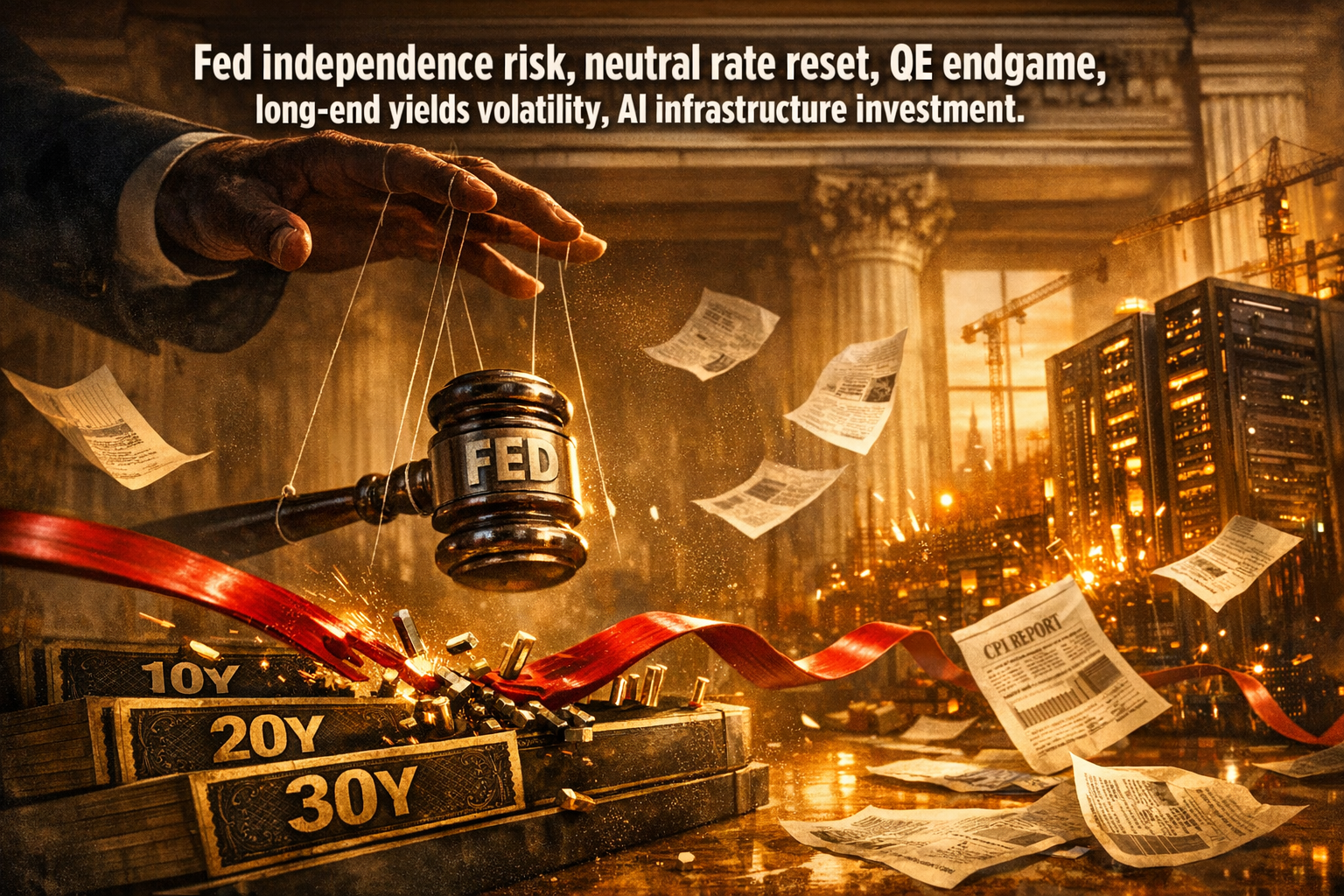Trump's announcement that he will personally inspect the U.S. gold depository, Fort Knox, is drawing attention. This event is not just about verifying the existence of gold; it could have significant repercussions intertwined with the credibility of the U.S. government and its Bitcoin strategy, so it should be carefully monitored.
▶ Overview of the Incident and Current Status
• Following an event in Miami, Florida, Trump stated in a press conference aboard Air Force One that he would personally verify whether more than 4,500 tons of the total 8,100 tons of gold stored in Fort Knox actually exists.
• This statement, coupled with Elon Musk's previous call to verify whether gold had been stolen, is intensifying domestic and international interest in the U.S. government's asset management and transparency.
▶ Trump's Intent and Significance of Visiting the Gold Depository
• If the gold exists as reported, the U.S. government can reassure the public about its asset holdings, but if the gold is lacking, it could significantly damage the government's credibility.
• Through this visit, Trump may intend to internationally publicize the status of the government's gold holdings to establish a foundation for his policy initiatives.
• Meanwhile, Trump's move to use this opportunity to convert Bitcoin into a strategic asset is also evident. Given that the White House is already reviewing Bitcoin stockpiling, there is a possibility that Bitcoin purchases will be strengthened if gold is lacking.
▶ Bitcoin Strategy and International Repercussions
• Trump's side may issue an executive order under presidential authority allowing the Treasury to purchase Bitcoin in bulk if problems arise in government asset management.
• Additionally, Michael Saylor, who serves as Trump's cryptocurrency advisor, and others are proposing that the U.S. government stockpile about 20-25% of the total Bitcoin.
• If the United States adopts a Bitcoin stockpiling policy instead of gold, other countries such as China and Russia are likely to respond by actively entering the cryptocurrency market, conveying a strategic message that the United States can lead the global Bitcoin economy.
▶ Conclusion
Trump's announcement of his visit to the gold depository encompasses more than just asset verification. Along with the issue of government asset transparency, it could serve as an opportunity to clarify the U.S. position on Bitcoin and cryptocurrency market strategies, so it is necessary to continuously monitor future developments.
[Related Articles at nextgeninsight.net/]
Trump: https://nextgeninsight.net/?s=%ED%8A%B8%EB%9F%BC%ED%94%84
Bitcoin: https://nextgeninsight.net/?s=%EB%B9%84%ED%8A%B8%EC%BD%94%EC%9D%B8
*Source : [비트코인 경제와자유] 트럼프가 직접 금을 확인합니다. 역사적 사건입니다. 이게 비트코인을 움직일 수 있습니다

The DoGE program is a new department established by the U.S. Trump administration to innovate the federal government’s inefficient spending and bureaucratic system. Elon Musk, famous as the founder of Tesla and SpaceX, participates in this program with the goal of operating government organizations like businesses and maximizing government efficiency by actively introducing technology and data.
■ Core Objectives of the DoGE Program
- Reduce Federal Government Spending
- The main goal is to reduce the federal budget by up to $2 trillion. This includes not only reducing manpower but also large-scale restructuring efforts such as reviewing the functions of departments and readjusting budget item priorities.
- Increase Government Operational Efficiency
- The plan is to break down the bureaucratic system and improve operational efficiency by utilizing technology (especially AI, big data, automation technology, etc.) to improve government documents, statistics, and decision-making processes.
■ Key Policies and Implementation Strategies
① Reduction and Abolition of Unnecessary Departments
- Maximize the efficiency of government organizations by integrating or abolishing departments that perform redundant or outdated functions.
- While there are concerns about the impact on the provision of public services and the reduction of civil servant jobs in this process, it is also expected to reduce the burden on taxpayers in the long term by reducing waste.
② Introduction of AI and Automation Technology
- The plan is to analyze the government’s vast data in real time with AI systems and simplify various document work and administrative procedures by introducing automation systems.
- Although there will be initial investment costs, it is expected to help reduce labor costs and make faster policy decisions in the long term.
③ Easing Government Regulations and Strengthening Private Cooperation
- The government is considering entrusting or privatizing some public services that do not necessarily need to be performed directly by the government.
- While introducing the expertise and efficiency of private companies to reduce costs and improve services, there are also debates about maintaining publicness.
■ Expected Effects and Ripple Effects
- Positive Impact on the Domestic Economy and Industry
- If unnecessary budget expenditures are reduced through efficient government operation, the tax burden on citizens and businesses is likely to decrease in the medium to long term.
- If a technology-based innovative administrative model is established, the speed and accuracy of government affairs as a whole are expected to improve significantly.
- Negative Impact and Concerns
- The issue of reducing civil servant jobs and reducing existing public services due to large-scale organizational restructuring and automation promotion can be a politically sensitive issue.
- If the government’s role only pursues efficiency like private companies, there are concerns that it will be difficult to maintain publicness in supporting socially vulnerable people or in the welfare sector.
- Ripple Effects on Overseas and International Society
- As the U.S. government plays the role of the world’s largest consumer and investor, reducing federal spending can affect the global economy.
- If a successful AI automation administration model is established, overseas governments and other countries, including South Korea, are likely to benchmark it.
- However, at the same time, concerns are being raised about responses in the diplomatic and trade fields, such as strengthening protectionist trade policies, so we need to pay close attention.
As such, the DoGE program is accompanied by various attempts to maximize government efficiency, and is a complex issue that requires consideration of both positive technological innovation effects and negative effects such as public service reduction and job reduction. It is worth noting what direction and compromise points will be found for government innovation not only in the United States but also in countries around the world in the future.
[Related Articles at nextgeninsight.net/]
U.S. Government Innovation > https://nextgeninsight.net/?s=%ED%98%81%EC%8B%A0
AI Automation > https://nextgeninsight.net/?s=AI
*Source : [John Chung No.1 Korean U.S. Attorney] 일론 머스크가 만든 정부효율부(D.O.G.E), 미국을 넘어 세계를 흔들다

Let’s examine how gold, Bitcoin, and changes in U.S. economic policy impact our investments.
- Background of Gold Price Increase
In recent years, gold prices have steadily risen as central banks have purchased large quantities of gold. This year, gold inflows into the United States amid concerns about U.S. tariffs on Europe have further boosted price increases. In fact, from November of last year to January of this year, the amount of gold that moved from the UK to the U.S. shows that 131 tons of gold flowed out of the UK, while the U.S. absorbed more than 578 tons. Major U.S. banks are also joining in gold purchases, further strengthening this trend. - Controversy Over the Reality of Government-Held Gold
Questions are being raised about whether the gold held by governments or central banks is actually physically stored. For example, there was a case where the gold held by the Bank of Korea was entrusted to the Bank of England in the UK, but sufficient physical confirmation was not made upon request. In the case of the United States, the Treasury Department does not allow visitors to Fort Knox for security reasons, raising doubts about the reality of the gold. Therefore, the question remains whether the reality of gold price increases is based on physical gold or simply recorded on paper. - Relationship Between U.S. Economic Policy and Gold Prices
Two main factors are driving the rise in gold prices.
① Weak Dollar: Historically, gold and the dollar move in opposite directions. The recent weak dollar due to the Biden administration’s monetary policy and changing expectations from the Trump era has triggered a surge in gold prices. Expectations of interest rate hikes in Japan have led to a stronger yen, which in turn has weakened the dollar, also affecting the rise in gold prices.
② Expanding U.S. Fiscal Deficit: With the U.S. continuing to increase its fiscal deficit, these uncertainties are stimulating investment sentiment in gold. As debt limit negotiations have not yet been concluded, and the fiscal deficit is likely to worsen in the future, the demand for gold, recognized as a safe asset, is bound to increase.
- Bitcoin and Gold: Comparison as Investment Assets
Bitcoin is often referred to as ‘digital gold,’ but there are clear differences between the two assets.
- Gold has been recognized as a physical asset for a long time, and there is an actual physical presence held or traded by governments or central banks.
- On the other hand, Bitcoin is a digital asset that cannot be physically touched, and it is highly volatile in the early stages of investment.
The fact that major investment institutions such as Goldman Sachs have recently significantly increased their holdings of Bitcoin spot ETFs shows that Bitcoin’s investment appeal is increasing. However, unlike gold, which can be physically verified, Bitcoin also contains uncertainty about its future value.
- Market Volatility and Investment Strategies
The market is becoming more volatile as various factors, such as U.S. fiscal management, the correlation between the dollar and gold, and increased institutional investment in Bitcoin, interact in complex ways.
- Depending on rising inflation and changes in the Fed’s interest rate policy, it is necessary to carefully examine the movements of gold and Bitcoin, which are classified as safe assets, unlike risky assets such as stocks.
- Currently, gold is showing strength by reading the uncertainties of the U.S. economy, but Bitcoin is in the early stages of investment and carries both the potential for future value appreciation and high risk, so a cautious approach is needed when investing.
By understanding the characteristics of each asset and changes in market conditions to establish an investment strategy, you can make rational choices even in an uncertain global financial environment.
[Related Articles at nextgeninsight.net/]
Gold: https://nextgeninsight.net/?s=%EA%B8%88
Bitcoin: https://nextgeninsight.net/?s=%EB%B9%84%ED%8A%B8%EC%BD%94%EC%9D%B8
*Source : [블랙, 쉽게 배우는 재테크] 종이금을 믿을 수 있을까? 보이지 않는 비트코인 역시 믿기 어려운 세상이다. (f. 기대인플레이션)

The stock market experienced significant volatility today due to a sharp decline in the U.S. service sector’s economic indicators. Overall, this can be interpreted as a result of multiple factors acting simultaneously, including macroeconomic instability, weakened consumer sentiment, tariffs, and geopolitical uncertainties. The details are summarized below by item:
- U.S. Service Sector Contraction
- The preliminary S&P Global (SMP) service PMI for February came in at 49.7. Falling below the benchmark of 50 marks the first such occurrence since early 2021, showing a sharp decline from 52.9 last month.
- This data signifies that such a significant contraction had not occurred during the past two years, even amid ongoing debates over high inflation and recession concerns.
- Consumer Sentiment and Interest Rate Outlook
- The consumer sentiment index also plummeted to 64.7, suggesting increased uncertainty throughout the market.
- Due to the underperformance of the service sector, expectations for interest rate cuts were formed in the short term; however, concerns over a recession grew, and the 10-year Treasury yield showed a downward trend.
- Historical data shows that reactions to interest rate cut expectations were evident when the economy was struggling, but this time, concerns about recession had a greater impact, leading to a significant drop in sensitive small-cap stocks (e.g., Russell 2000).
- Trump Administration and Geopolitical Variables
- The Trump administration’s hardline policies, tariffs, and geopolitical uncertainties are further fueling market anxieties.
- The government anticipates that the planned policy implementation is inevitable, even with temporary burdens, and is mentioning the possibility of a surge in unemployment due to job cuts.
- Trump’s approval rating remains stable among some politicians and citizens, leading to both concerns and expectations that his aggressive policy deployments will continue.
- Market Response and Future Outlook
- Today, the S&P 500 fell by more than 1.7%, the Nasdaq by more than 2%, and the Russell 2000 by about 3%, resulting in a significant correction.
- Expectations for interest rate cuts still exist, but at the same time, recession concerns are widespread, making a short-term stock market recovery seem difficult.
- Famous hedge fund manager Steve Cohen predicts that tariffs, immigration policies, and federal spending cuts will slow U.S. economic growth in the second half of the year and that a major stock market correction could occur.
The market's decline today carries significance beyond short-term figures, resulting from a complex combination of factors, including macroeconomic instability, weakened consumer sentiment, and the government's aggressive policy pursuits. Future developments are expected to be heavily influenced by the potential for interest rate cuts, policy burdens, and geopolitical variables.
[Related Articles at nextgeninsight.net/]
Macro Policy Trends: https://nextgeninsight.net/?s=%EB%A7%A4%ED%81%AC%EB%A1%9C
Trump Impact Analysis: https://nextgeninsight.net/?s=%ED%8A%B8%EB%9F%BC%ED%94%84
*Source : [Maeil Business Newspaper] [홍장원의 불앤베어] 금리인하 기대감 올랐지만 러셀2000이 제일 많이 빠졌다. 시장 이제는 스태그를 보나. 트럼프 3선 도전 진짜?



